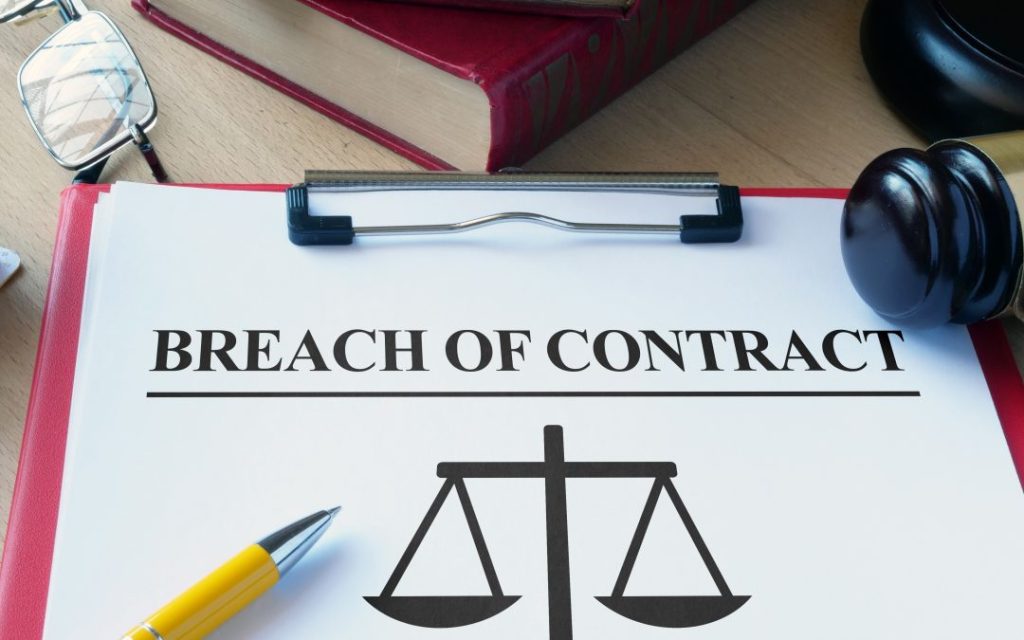Contracts form the backbone of business and professional relationships. When one party fails to honor their end of an agreement, it can have significant financial and emotional consequences. In such cases, many people wonder how to sue a company for breach of contract or whether they need an attorney for employer breach of contract. Understanding your rights and legal options can make the difference between recovering damages and facing losses alone.

Content
What Constitutes a Breach of Contract?
A breach of contract occurs when one party does not fulfill the obligations outlined in a legally binding agreement. This could involve failing to deliver goods, not paying for services, or violating employment agreements. If you are facing such a situation, you may ask yourself: can you sue someone for breaking a contract? The answer is often yes, but the process requires careful steps and legal expertise.
Can You Sue Someone for Breach of Contract?
Yes, but the approach depends on the nature of the violation. If you are wondering how to sue someone, the first step is to gather all documentation, including the contract, communication records, and evidence of damages. Hiring a lawyer to sue a company can help you navigate complex rules and ensure your case is presented effectively. For employees, a lawyer to sue an employer may be necessary if your contract or workplace rights have been violated.
Emotional Distress and Related Claims
In addition to financial damages, some breaches of contract may cause severe stress or reputational harm. Victims often ask:
- Can I sue for emotional distress?
- How to sue for emotional distress after a contract violation?
- Can I sue for harassment emotional distress?
Courts sometimes recognize claims for emotional harm, especially when a lawsuit for emotional distress after contract violation involves harassment, wrongful termination, or defamation. For instance, if an employer’s breach causes mental anguish, you may pursue compensation alongside financial damages.
Wrongful Termination and Workplace Issues
Employment disputes are among the most common breach of contract cases. Many workers ask:
- Can I sue my employer for firing me without warning?
- Can I sue for wrongful termination?
- How to sue for wrongful termination?
If your employment agreement was violated, or if you were dismissed unfairly, an attobrney for employer breach of contract can guide you. Claims may also involve harassment, workplace discrimination, or retaliation, making it vital to consult an experienced employment lawyer.
Defamation and Reputational Harm
Another related question people raise is: can you sue someone for defamation of character? If false statements damage your reputation or career, you may have grounds for legal action. It’s important to know:
- How to sue someone for defamation of character – requires proving false statements, harm caused, and negligence.
- How much can I sue for defamation of character? – damages vary, depending on lost income, reputational harm, and emotional suffering.
If defamation occurs alongside a contract breach, it strengthens your overall claim.
Other Situations Where You Can Sue
Breaches of contract sometimes overlap with other disputes. For example:
- You might sue an insurance company if they fail to honor a coverage agreement.
- You may wonder, can I sue the county for false charges? If wrongful legal actions harmed you, compensation might be possible.
In all these cases, consulting a lawyer for suing a company ensures you understand your rights and the remedies available.
Why Hire a Lawyer for Breach of Contract?
While you might think you can pursue a claim on your own, legal procedures are complex. A skilled attorney can:
- Review your contract and determine validity.
- Explain how to sue a company for breach of contract step by step.
- Assess additional claims like wrongful termination, defamation, or emotional distress.
- Represent you in negotiations or court.
Final Thoughts
If you are asking yourself whether to sue someone for breach of contract, wrongful termination, or emotional distress, remember that each case is unique. Whether it’s against a company, employer, or even a government body, the right attorney can help you seek justice. Don’t navigate these challenges alone—work with a knowledgeable legal team to protect your rights and achieve the outcome you deserve.

George is a wonderful person. He is very nice and always willing to help out! He loves his job because it lets him share interesting things with people who want to know about new developments in the world of technology.
